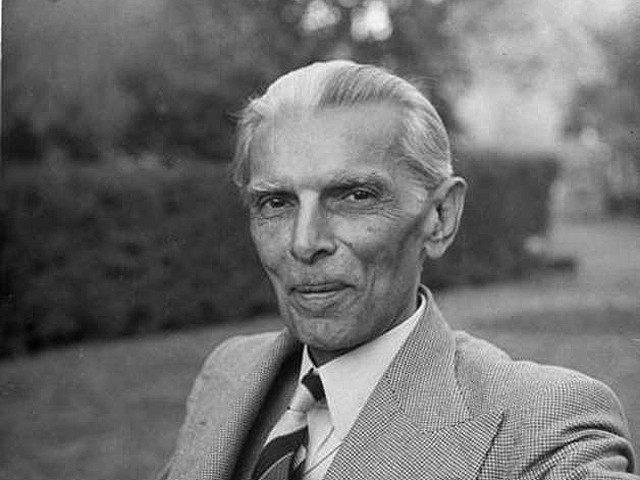Jinnah’s vision distorted
If Jinnah was alive today, he would have been shocked at the way he has been portrayed in our history books


To the shrinking liberal strata of society the August 11 speech is a touchstone. Jinnah speaks with clarity of a state that is tolerant, inclusive and above all secular, but it was a vision that quickly was deliberately clouded by those who came after him and then metamorphosed over decades into the creature that the state has become today — riven by sectarian conflict, at the mercy of terrorists who roam at will and butcher our children with seeming impunity. A state where those who carried out the attack on the Army Public School in Peshawar on December 16 spent the night before staying in a mosque close by according to the initial police report on the attack. A state that is not failed — nor is likely to despite what the Cassandra’s may say — but is deeply flawed and performs far below where it should, given the plenitude of human and natural resources at its disposal.
It is clear that those who succeeded Jinnah in the corridors of power were distinctly unimpressed by what he said in his August 11 speech, and we are the worse off for it. They were powerful religious ideologues — to say nothing of vaultingly ambitious at a time when real power was close to hand — and they did what they could to suppress the speech in newspapers and it was virtually erased from the record.
Only of late, has there been some kind of attempt by progressive segments of society to demand that this important speech by the Quaid be given the importance in the national imagination that it merits.
Pakistan stumbled into the late 1960s, through the 1970s and on into the early 1980s via a steady process of Islamisation and the enactment of discriminatory laws targeted at minorities. The parts of that historic speech that did not chime well with our leaders and those who educated successive generations of our children — became lost. Deliberately lost. Jinnah himself was rebranded, shaped by a distorting mirror.
The secular, Westernised man that he was for the majority of his adult life was morphed into someone he was clearly not. Jinnah was portrayed by successive ruling regimes in a manner that suited their own perverse agenda for the country and his liberal leanings were completely ignored. If he were alive today, Jinnah would have been shocked at the way he has been portrayed in our history books.
History does not come with an ‘auto-correct’ button. The Pakistan of today is what its people, and particularly several generations of politicians — have made it. Such visionaries that we have border on the delusional on occasion, and a broad streak of mediocrity runs through most of the political cadre. When a state chooses second-best to lead it, then it is no surprise that the state itself becomes second best. Jinnah may not have been perfect, but any flaws he may have had were by far outweighed by the clarity and discipline of the vision that drove him. We shall not see his like again.
Published in The Express Tribune, December 25th, 2014.
Like Opinion & Editorial on Facebook, follow @ETOpEd on Twitter to receive all updates on all our daily pieces.















COMMENTS
Comments are moderated and generally will be posted if they are on-topic and not abusive.
For more information, please see our Comments FAQ